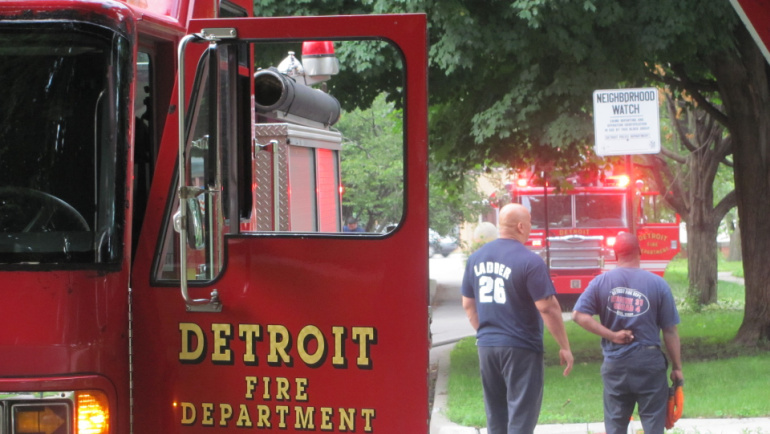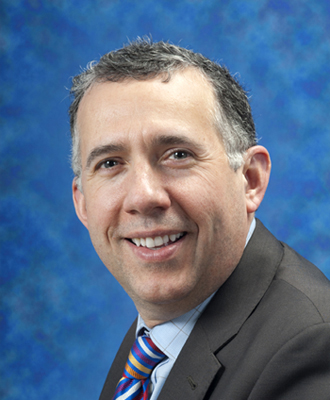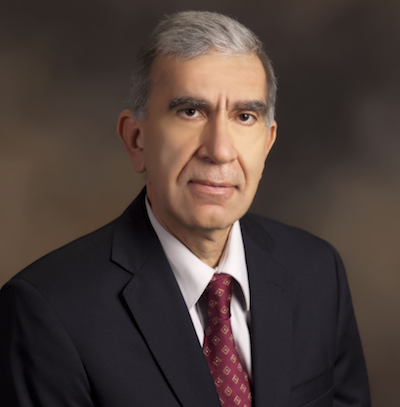
The Wayne State University Department of Psychiatry and Behavioral Neurosciences and the State of Michigan have launched a new website and phone line to provide assistance and training for the state’s first responders and their families confronting the stresses they face in their everyday duties. The Frontline Strong Together (www.fst5.org) website and call line (1-833-34-STRONG) were created by first responders and mental health experts. The site provides 24/7 live support, effective resources and cutting-edge services to prevent and alleviate post-traumatic stress disorder, anxiety, depression and other work-related mental health challenges.
Mental health experts from Wayne State University and Wayne Health teamed with the Michigan Crisis and Access Line (MiCAL) and representatives of the Michigan Professional Firefighters Union, the Fraternal Order of Police, the Department of Corrections, paramedics and dispatchers to develop the program. A $2 million grant from the Michigan Department of Health and Human Services funded the development of education, training, support and behavioral health treatment services by the WSU Department of Psychiatry and Behavioral Neurosciences. The programs assist police, firefighters, emergency medical technicians, dispatchers, corrections personnel and their families in addressing and reducing sources of stress from both acute and chronic stressors.

According to the U.S. Department of Health and Human Services, an estimated 30 percent of first responders experience mental health disorders, including depression and post-traumatic stress disorder, compared to 20 percent of the general public. Rates of suicide are higher among first responders. The U.S. Centers for Disease Control and Prevention reports that law enforcement officers and firefighters are more likely to die by suicide than in the line of duty, and EMS providers are 1.39 times more likely to die by suicide than the general public. Between 17% and 24% of public safety telecommunicators have symptoms of post-traumatic stress disorder and 24% have symptoms of depression. The National Institute of Corrections reports that 19% of prison workers surveyed “reported symptoms that were severe enough to be diagnosed as PTSD,” a rate six times higher than that of the general population.
“Frontline Strong Together distinguishes Wayne State University in that the research we do is not in some ivory tower. This is right in the trenches with the community, in real time, to develop evidence-based approaches to help as many people as possible,” said David Rosenberg, M.D., chair of the WSU Department of Psychiatry and Behavioral Neurosciences. “We go where the data is and implement the best practices.”

The training and resources made available throughout the state under Frontline Strong Together will provide support via academic-backed medical research in a state with a critical lack of support services, especially for first responders and their families. WSU psychiatrists developed and will manage a statewide clearinghouse of materials that include training videos and manuals, and train-the-trainer curriculums for use in police, firefighter and other first responders training. The website includes videos by mental health experts that provide explanations and positive techniques, and training videos for families and peers. Topics include effective language family members can use to deescalate situations; recognizing self-harm, including alcohol and substance use; psychiatric symptoms; non-violent communication; when and where to get help for mental health treatment; and coping mechanisms for stress and trauma.
Peer support and training is a vital component of Frontline Strong Together, said Alireza Amirsadri, M.D., associate professor of WSU Psychiatry and Behavioral Neurosciences and the main developer of the project. Trainees are taught in-person and through virtual platforms, and receive ongoing training.
“The goal of peer training is not to ‘fix’ all of the problems, but rather to know how to handle and communicate about certain situations,” Dr. Amirsadri said.
Another critical component of the intervention program is tele-health services. A registry of mental health providers is available for referrals if a first responder prefers in-person assistance. Services include assessments, cognitive behavior therapy, medication management and outpatient therapy for mental health. Cutting-edge and innovative PTSD treatments utilizing augmented reality technology are also being developed. This technology will allow first responders to practice exposure to normal life situations they avoid due to traumatic experiences.
Wayne State University
Wayne State University Wayne State University is a premier urban research institution offering more than 350 academic programs through 13 schools and colleges to nearly 27,000 students.
MICAL
MICAL Michigan Crisis and Access Line is Michigan’s 24/7 statewide crisis, support, information and referral line. It is for ALL Michiganders and is meant for people in crisis or distress who do not know where to turn. For more information, call or text 988.
